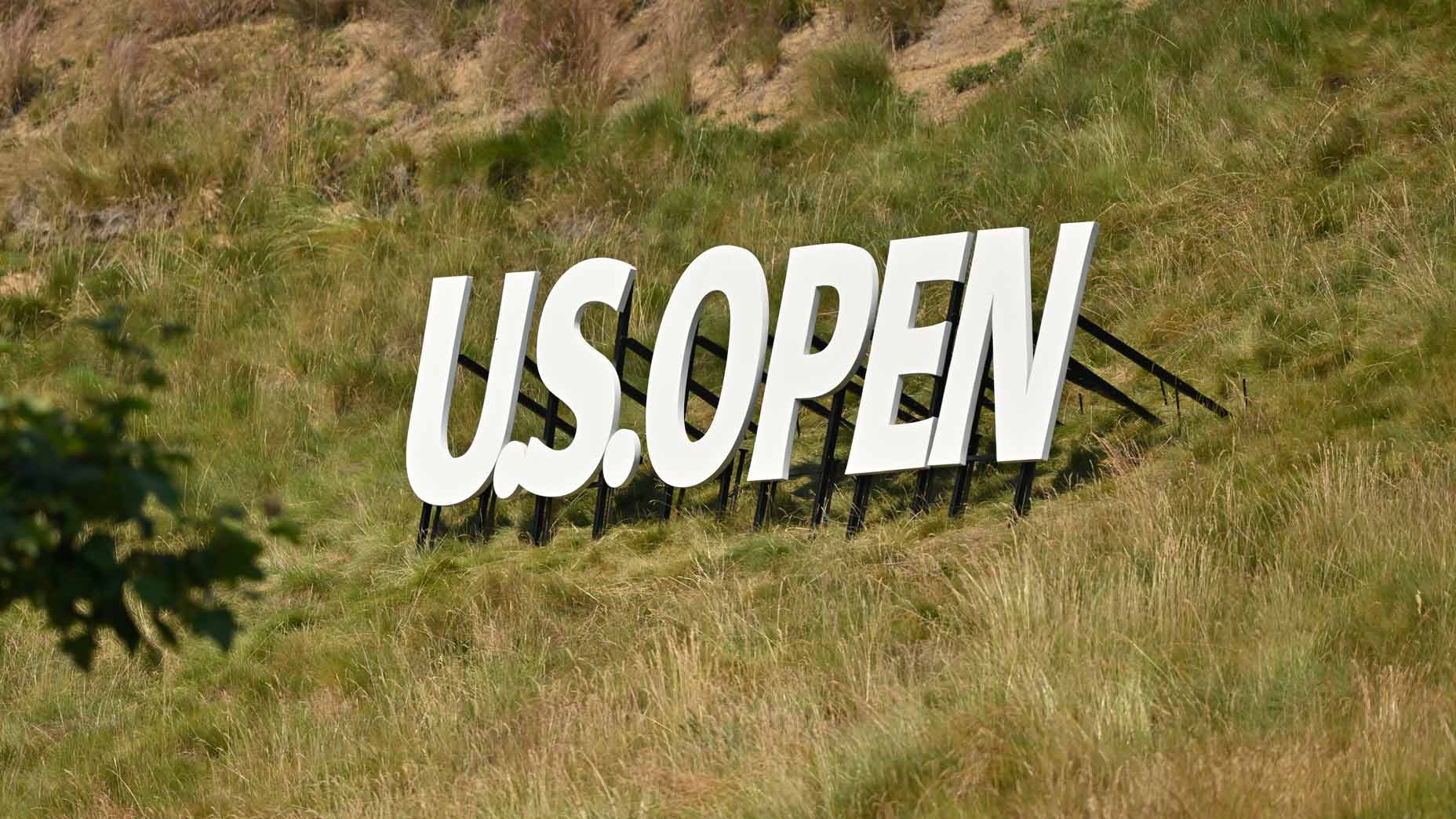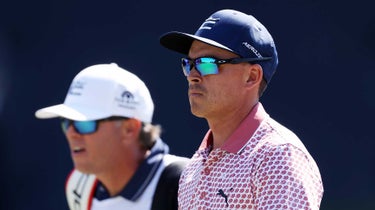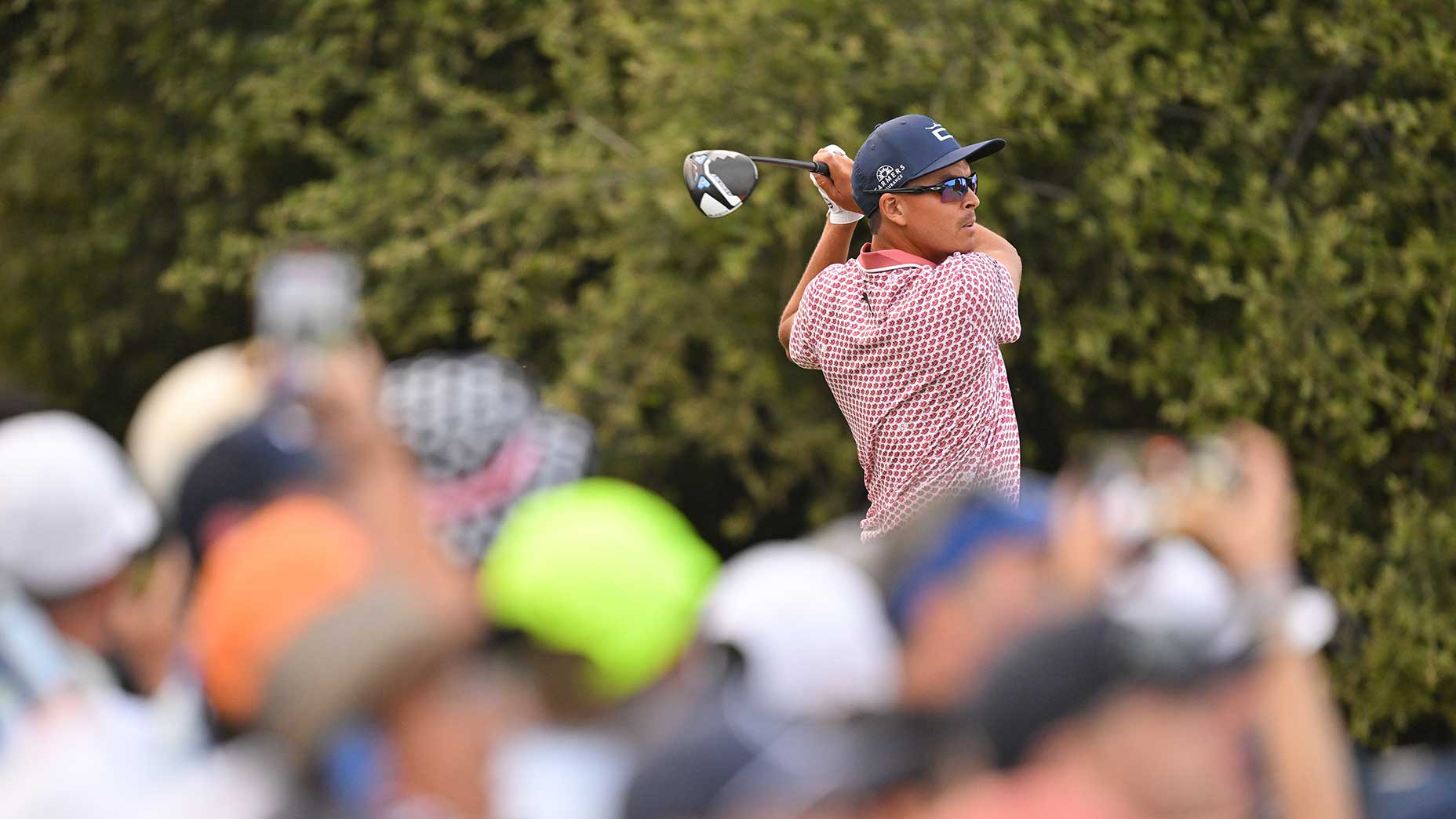
This year’s U.S. Open will feature plenty of players who don’t win.
Getty Images
LOS ANGELES — It’s Saturday night at a major championship, which means it’s time to dream of the history to be made come Sunday. Of a pro stepping up to a putt on the 18th green, knowing its significance, and holing it anyway. Of a champion earning his name on the trophy, through heroics, patience and a blend of the two. It’s time to dream of the last man standing.
It should be, at least. But this week? I can’t stop thinking about what won’t happen.
A week ago, the first of 156 players began to descend on Los Angeles Country Club. That’s when the greatest number of pros are in good spirits: before their golfing fates have begun to unfold. Until Thursday morning there are 156 potential winners. Schrodinger’s golf tournament. But then the box gets opened and the golf gets underway and those 156 get whittled down to one. It’s a terrific way to crown a champion. But there’s something tragic, too, in the unraveling of 155 stories that aren’t to be.
At the U.S. Open, plenty of dreams don’t make it past Day 1. You can’t win a major on Thursday, after all, but you sure can lose it. Take Joel Dahmen, the surprise fan-favorite contender at last year’s Open, as example No. 1: his opening 74 all but ensured he wouldn’t be a factor on the weekend.
Day 2 marked a more formal end to competitors’ chances. Some missed cuts left no doubt, like the shocking 81 turned in by Justin Thomas, who beat just two pros and said the moment was “the lowest I’ve felt.” Some were surprising, like that of Jordan Spieth, who bogeyed three of his last six holes to finish one shot outside the number. Some robbed us of weekend fan favorites; Phil Mickelson opened with 69 but followed that with 74 to finish one shot out, too, officially ending this year’s run at the career grand slam. And others were downright heartbreaking, like the second round of Max Homa, who’d made it clear exactly how much this tournament meant to him, played his way into Day 1 contention and then cratered to a Friday 76 that included three double bogeys.
Day 3 ended more narratives still. Jon Rahm, our Masters champion, was among the first pairings out but left frustrated with a closing bogey and a third-round even-par 70. His score of two over par has him T38. Brooks Koepka, our PGA champion, was making a move towards Sunday relevance before four-putting the 15th for double bogey. He shot 70, too, leaving him even par for the tournament and 10 shots back. That seems too far back.
We said goodbye to one tournament darling, newly minted pro Sam Bennett, who arrived Saturday morning with a share of fifth place but without his characteristic goatee and proceeded to shoot a clean-shaven 79, the highest score of the day. And we shut the door on the possibility of a repeat champion; Matthew Fitzpatrick played well in shooting 68 but enters Sunday nine back at one under par. Other compelling contenders made mini-runs on Saturday — Tom Kim shot 29 on the front, Bryson DeChambeau made five birdies on the front and Cameron Smith got to five under par — but all three are stuck seven shots back. One better than them is World No. 522 Ryutaro Nagano, who has played just one major and one PGA Tour event before this but now enters Sunday in eighth. His 500-1 odds suggest the establishment doesn’t think he’ll be there at the end.
We’re left, dear reader, with a handful of players who comprise our pool of likely winners. And their stories will be the toughest of all to abandon, knowing how close they are to fruition.
Xander Schauffele stood on the 13th tee at eight under par, just two shots off the lead. He walked off the 18th three shots further back; he’s T6 now and his Saturday 73 means his chances at his first major are already slipping away. He’s come agonizingly close to U.S. Opens before — it’s kind of his thing — which means this near-miss would sting a little sharper.
Dustin Johnson? He seems like he’d enjoy winning, no doubt. But I’m also not sure it’d ruin his dinner if he didn’t. I’m not worried about DJ.
How ’bout the triumphant charge of Harris English? He reached 10 under par through 10 holes on Saturday, a number that could well prove to be the winning final score. Winning the U.S. Open wouldn’t just be the biggest moment of English’s career — it’d mark a complete legacy shift for the unassuming 33-year-old. It must have occurred to him somewhere on that front nine that he had a chance to win and it must have occurred to him on his four-bogey back that his chance was slipping away.
The folks in Vegas (okay, they’re not really in Vegas anymore, but you get the idea) say there are four favorites who’ve separated themselves from the pack.
The least-agonizing loser would be Scottie Scheffler. He’s ascendant, after all, and he won a major just last year. But man, what a claim he has to this one! Scheffler entered the week on a stretch of historically good tee-to-green golf and uncharacteristically poor putting. On No. 17 he solved that problem by holing an iron shot from 196 yards (To quote Happy Gilmore: “That was so much easier than putting, I should just try and get the ball in on one shot every time!”) and followed that up with a rousing 22-footer for birdie at No. 18. (He’s putting quite well this week, to be fair.) Scheffler’s been playing the best golf on the planet. He’s plenty deserving. He’s just three shots back. And he’s very much in his prime. So if he lets this one slip, it’ll hurt.
Then there’s Rory McIlroy, the man with whom Scheffler will spend his Sunday afternoon in the penultimate pairing. That’s pretty neat, the World No. 3 paired with the World No 1 trying to chase down the leaders in the final round of a major. You already know Rory’s story, which means you understand the stakes. You’ve heard how it’s been nine years since his last major, how he’s won everything else since then, how he’s contended and contended and contended, how this one would mean more than any of the others. He’s back in position to win, which means he’s back in position to not win, too. It’s the hope that kills you.
Wyndham Clark holds a share of the lead. His is a new name to plenty of fans but his star’s been on the rise; if you saw him close out the Wells Fargo Championship last month, you know he has everything it takes. On Saturday he birdied the first and birdied the third and showed he was up for the moment. After bogeys at 11 and 12, he birdied 13. And after a bogey at 17, a score he attributed in part to the looming darkness, he channeled his frustration into a dart-throw iron into the 18th, which he punctuated with a ferocious club twirl. He’s in the final pairing. He’s tied for the lead. Losing that now? Ugh.
But it’s Clark’s final-round playing partner who has the most to gain and, conversely, the most to lose. What a moment it would be if Rickie Fowler could close out the U.S. Open on Sunday evening. It would validate all the hard work Fowler has put in in recent years, completing the climb from No. 175 in the world back to the game’s upper crust. But it’s not just that. A win would validate Fowler’s entire career. It would validate the attention he’s gotten since he turned pro. It would be a mic-drop response to any accusations he’s overrated. Heck, it would even validate Fowler’s historic major season from 2014, when he finished top five at all four. The memories of near-misses would feel suddenly better knowing they’d ultimately let in one big make.
The heartbreaking reality that only one of these dreams will come true is the entire point of sports, of course. There are winners and there are losers. The former matters because the latter hurts. In golf, the losers outnumber the winners, and it’s not close. But come Sunday night the whittling will be done and the Open will be won.
We can only hope the champion feels full and proper satisfaction, recognizing the magnitude of his accomplishment and the unlikelihood of his win. Only then can he balance out the pain of those he beat to get there.
On that note: let’s watch some golf!










